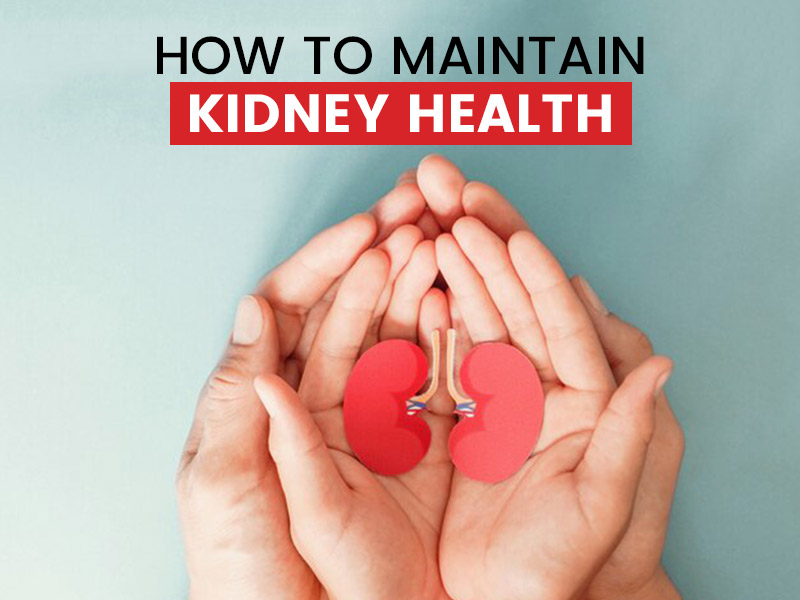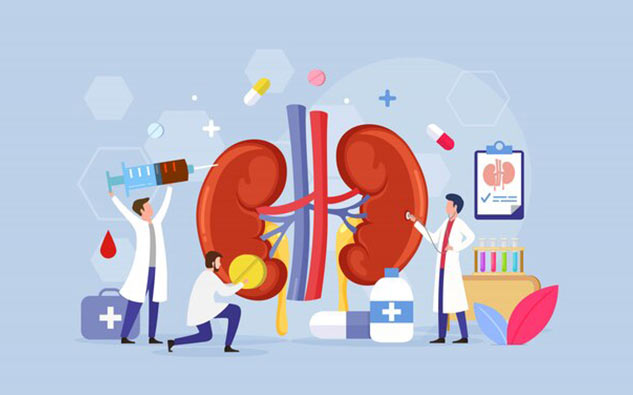
Your kidneys keep your blood pure. Filtering and removing toxins from the body is the primary thing it does. They play a prominent role in urinary function, which, in turn, help in regulating the body’s temperature. They release hormones that help in controlling blood pressure, promoting bone health, and creating red blood cells. Well-functioning kidneys are crucial. So, what can you do to maintain good kidney health? For an answer to this question, Onlymyhealth spoke to Dr. Ashutosh Soni, Consultant - Nephrology, Paras JK Hospital, Udaipur.
Table of Content:-
Signs Of Kidney Disease
“Kidney diseases are asymptomatic to a large extent and, unfortunately, exhibit symptoms when 80% of the functional reserve are already gone,” said Dr. Soni. “A healthy individual’s kidneys have filtration power of nearly 120ml per minute. When kidney diseases develop, this filtration power gradually decreases,” he added.
Symptoms of kidney disease include:
- Weakness
- Low hemoglobin count
- High blood pressure, when the filtration power dips to less than 60ml per min.

(Photo Credit: Freepik)
As the kidney health deteriorates, severe symptoms are experienced, such as:
- Nausea
- Vomiting
- Decreased appetite
- Extreme weakness
- Poor control over diabetes
- High blood pressure as filtration rate dips to 15 ml per minute.
However, there are some kidney diseases, such as kidney stones and urinary tract infection (UTI), that exhibit symptoms early. Symptoms of UTI include frequent urination, burning sensation while peeing, and fever. Similarly, symptoms of kidney stones include severe pain, nausea, fever, etc.
Also read: Can You Get UTI From A Toilet Seat? Dr Cuterus Explains
Risk Factors For Kidney Diseases

(Photo Credit: Freepik)
Following are the risk factors associated with kidney diseases:
- Diabetes & High Blood Pressure: Both chronic health conditions increase your risk of kidney diseases. 45% of kidney diseases are secondary to diabetes, explained Dr. Soni. Similarly, 27% of chronic kidney diseases are due to increased blood pressure, he added. Hence, diabetic and hypertensive people are at an elevated risk of suffering from kidney diseases.
- People who live in deserts or deserted regions tend to drink less water. Hence, they get prone to kidney stones.
- Certain occupations also elevate your risk. For example, people exposed to agricultural toxins are likelier to suffer from kidney diseases.
Diet For Improving Kidney Health
There are no specific foods that can protect you from kidney diseases.
- Although green leafy vegetables, fruits, and nuts promote kidney health, your doctor might recommend against them if your kidneys don’t function properly.
- Protein intake is generally reduced in the case of kidney disease.
- However, the same can be increased when the patient is on dialysis.
- Drinking enough water is crucial for keeping kidneys healthy.
Hence, there is no specific diet that can help and you should consult your nephrologist for dietary advice if you suffer from kidney disease.
Exercises For Kidney Health
Dr. Soni recommends walking as best for the cardiorespiratory system and kidney health. You should meditate and do pranayama to manage stress. Hence, a combination of cardiovascular exercises along with Yoga and pranayama can keep your heart, lungs, and kidneys strong.
“Kidneys are well-protected by themselves,” the doctor said. For taking care of them, drink at least three litres of water per day, quit smoking, eat healthy food, and exercise regularly. If you suffer from diabetes or hypertension, take steps to control them.
(With inputs from Dr. Ashutosh Soni, Consultant - Nephrology, Paras JK Hospital, Udaipur)
Photo Credit: Freepik
Also watch this video
Read Next
Difficult To Manage Dental Health Due To Busy Schedule? Here Are 7 Expert Advised Hacks Just For You
How we keep this article up to date:
We work with experts and keep a close eye on the latest in health and wellness. Whenever there is a new research or helpful information, we update our articles with accurate and useful advice.
Current Version